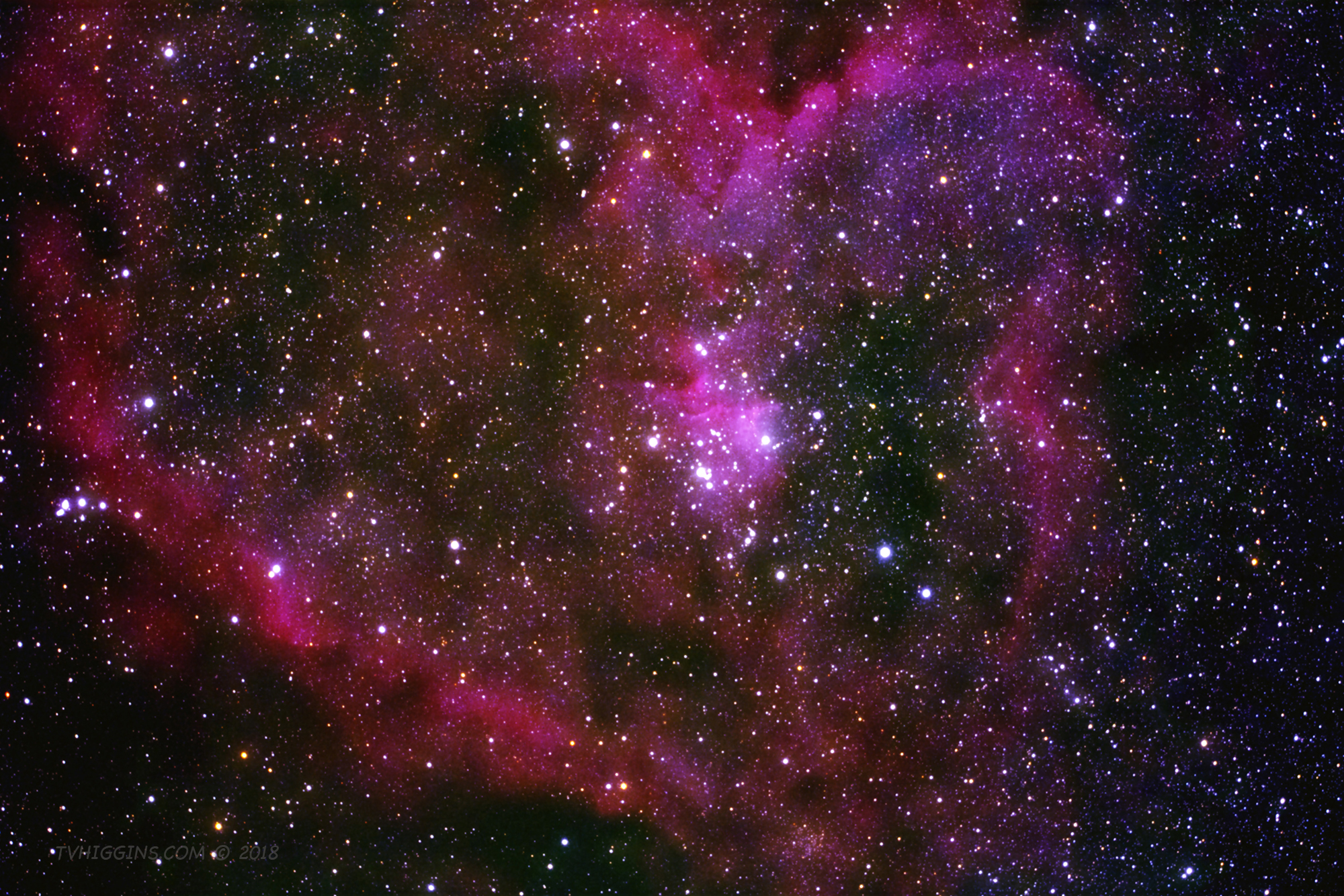The Heart Nebula (IC 1805)
- Telescope: Stellarvue SVA130T-IS
- Mount: Losmandy G-11 with Gemini 2 controller
- Autoguiding: Yes
- Optical Configuration: 0.72x field flattener & reducer (f/5)
- Camera: Canon 60Da
- Light Frames: 25, 6-min. exposures
- Calibration: None (no darks, no flats, no biases)
- Exposure Time: 150 min. (25 x 6 min.)
- ISO: 800
- Processing: Photoshop CC
- Imaging Location: Sierra Nevada Mountains (Altitude: 8,600 ft)
About 7,500 light-years away in the constellation Cassiopeia, the feeble red light from a very dim emission nebula traces the shape of a heart in the sky. With an apparent magnitude of only 18.3, the aptly named Heart Nebula requires long exposures to tease out the details of its shape.
Ultraviolet light from the open cluster of stars (Melotte 15) near the nebula’s center stimulates the re-emission of red light from ionized hydrogen gas (H II) in the interstellar medium. Hints of blue light from doubly ionized interstellar oxygen gas (O III) also can be seen throughout the nebula.
Because the nebula’s size exceeds the widest field of view of the telescope-sensor configuration (1.95° x 1.30°), some parts of the object extend off frame in the image above.
